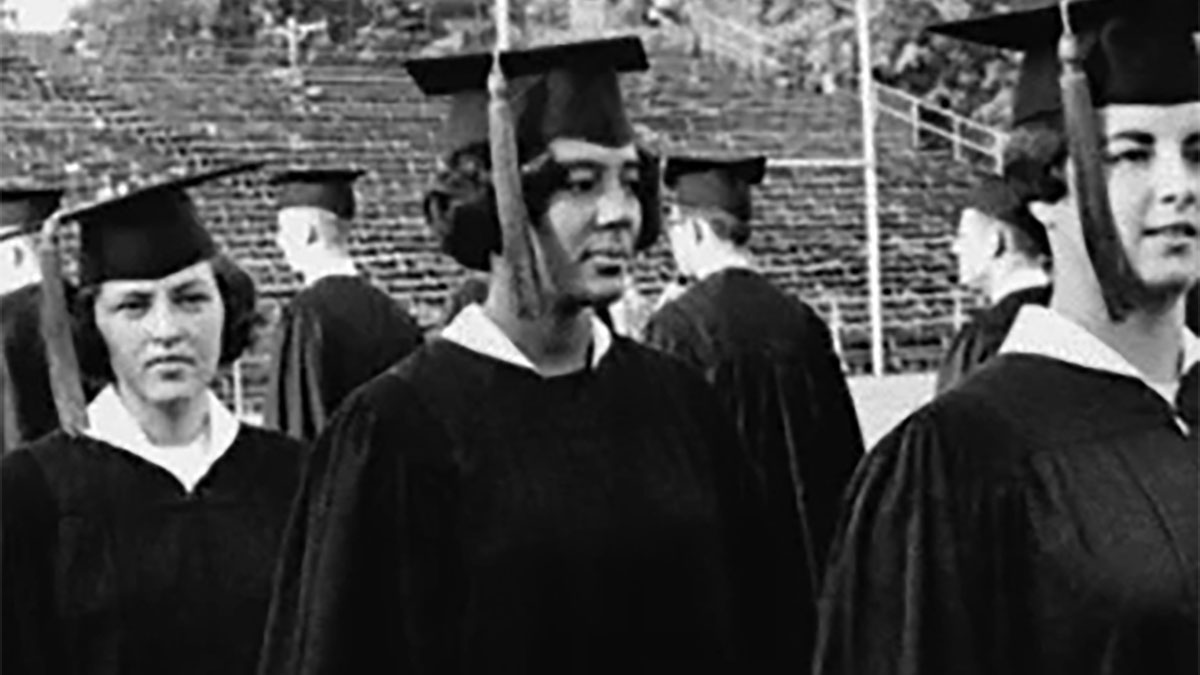
MAY 30, 1965

Vivian Malone became the first Black graduate of the University of Alabama in its 134 years of existence.
Gov. George Wallace had blocked her entry two years earlier. The night after her 1963 admission, she awoke to learn Mississippi NAACP leader Medgar Evers had been assassinated.
“I decided not to show any fear and went to classes that day,” she recalled, even as white students refused to return her smile or make eye contact with her.
One night at midnight, someone knocked on her dormitory door and told her there was a bomb threat. No bomb was found, but bombs went off later that year, not far from her dormitory. Despite that, “I was never afraid,” she said.
She graduated with a degree in business management and joined the civil rights division of the U.S. Department of Justice. She served as director of civil rights and urban affairs and later as director of environmental justice for the Environmental Protection Agency. In 2000, her alma mater gave her an honorary doctorate, and she told students, “You must always be ready to seize the moment.”
In 2018, her hometown of Mobile dedicated a downtown street for her.

